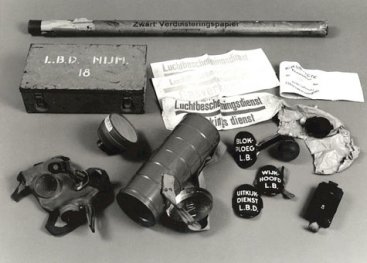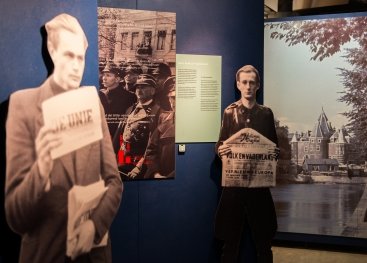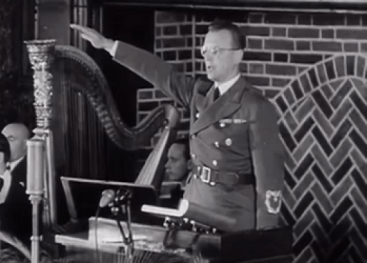
Register?
‘Declaration of Aryan origins’
The first anti-Jewish regulations seemed rather harmless. In October 1940 all 200,000 civil servants were required to fill in an 'ancestry form', indicating their religion and that of their parents and grandparents. Everyone knew that the purpose of this ‘declaration of Aryan origins’ was to register Jewish civil servants, yet the response was massive compliance.
An employee of the Amsterdam Rijksmuseum told us:
'When it came to the Aryan Declaration most of us reacted quite laconically, even the Jewish employees. "Just fill it in," one of them said to us. "Refusing will only make the situation worse for us." We had to fill in the form ourselves.'
The Dutch respected authority and appreciated proper administration. Only a few dozen civil servants did not fill in the declaration.
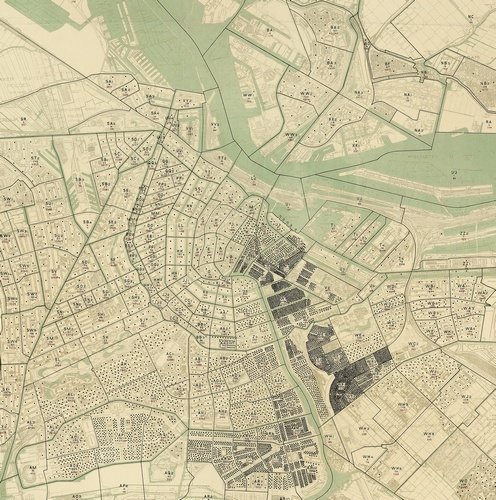
Map of Jewish inhabitants of Amsterdam
This registration made it easier for the Germans to carry out other measures against the Jews later on.
Theo Inden
Theo Inden worked at the Zeist Public Library. He refused to cooperate in any way with carrying out the occupiers' racial laws. A board member wrote to him: 'It has come to my attention that you are regrettably refusing to sign the declaration regarding your Aryan origins. This will not only cause serious problems for yourself but also for the Library and its Board...' Inden did not recant.
One month later the Jewish civil servants were dismissed. In Leiden and Delft, students went on strike to protest against the dismissal of their Jewish university teachers.
Reverend Koopmans wrote in an illegal leaflet:
'Unwittingly we filled in the forms. Had we unanimously refused, it would simply have been impossible for the Germans to import their practices into this country. We must honestly confess that now it is too late.'
In January 1941, all Jews had to report for registration. Almost everyone obeyed. After all, what would happen if you refused? And why shouldn't you be open about your origins?
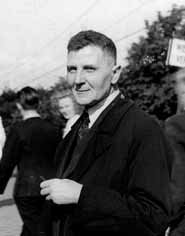

Milo Anstadt
Milo Anstadt from Amsterdam told us:
'We were immigrants from Poland and there was no record of our being Jewish in the Netherlands. I tried to talk my father out of registering us as Jews. Others thought we should be proud of our origins. In the end it was loyalty to our origins that decided it.'
Jo Spier
Jo Spier, typographer from Amsterdam:
'When the compulsory registration came for the Jews we didn't see any other way out except to comply. Sure, you might say we were just following orders. Obviously, we also had no idea what was awaiting us. No one could imagine that extermination camps would be at the end of it.'

